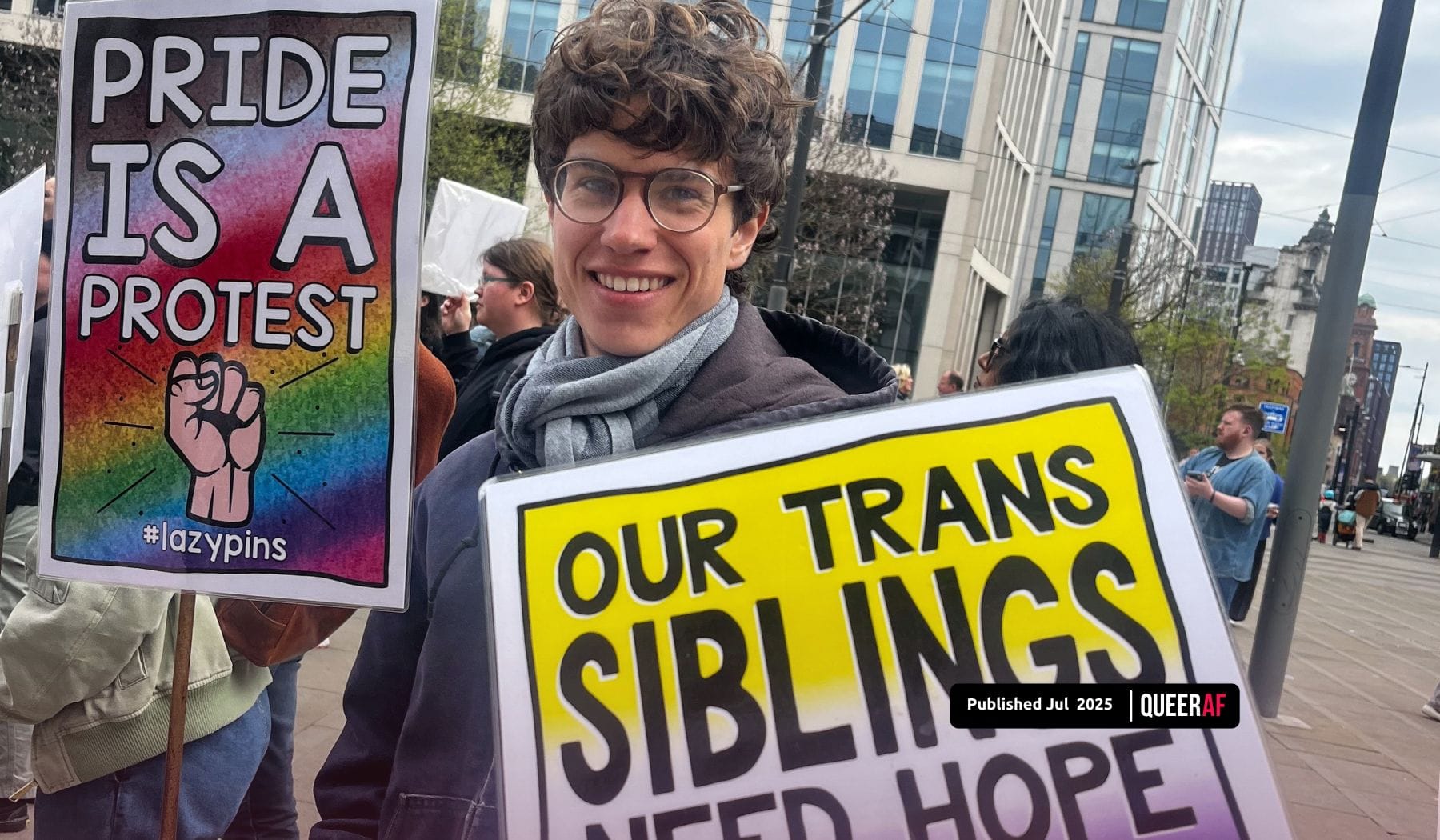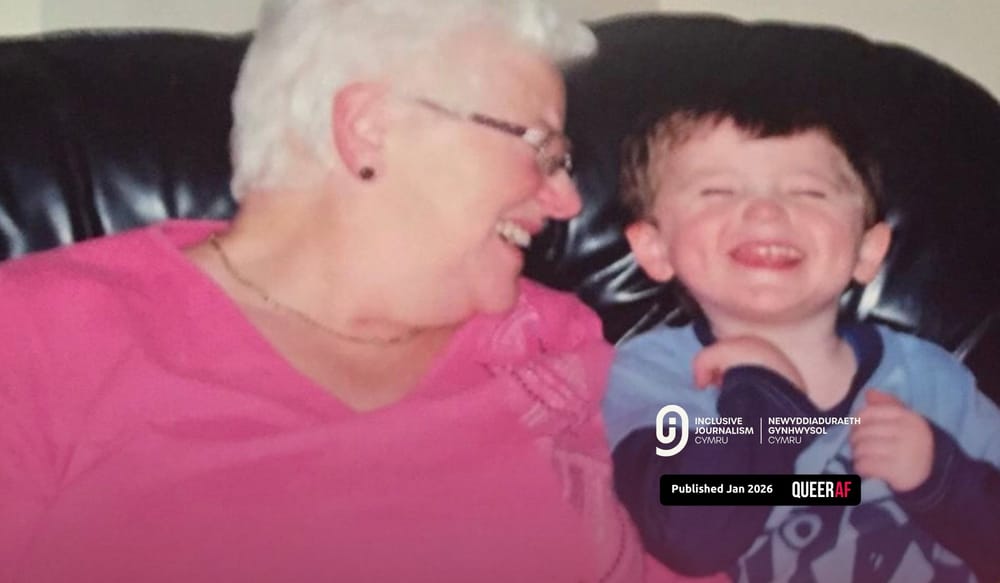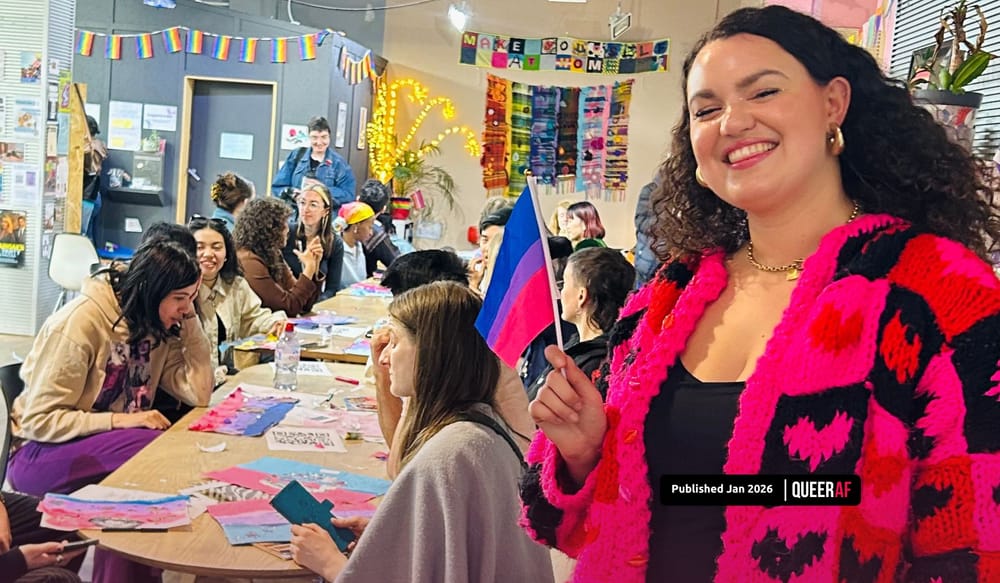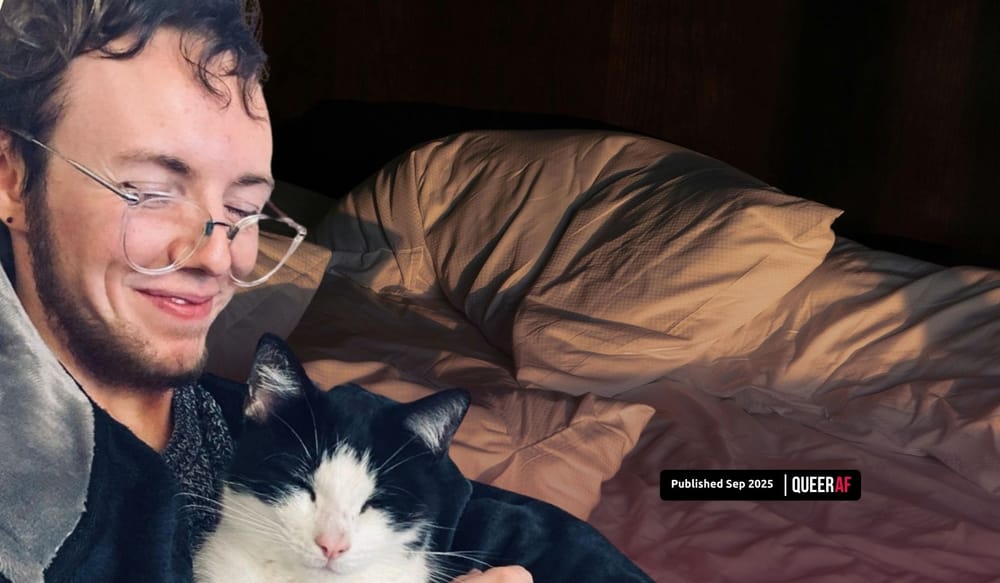
As a trans teen, I pushed my queerness to the back of my mind. Society made it clear that being a ‘normal boy’ was the goal. I didn’t talk about it, I didn’t engage with it, and I certainly didn’t protest about it.
I believed that if I could just get hormones, surgery, and a gender recognition certificate, I’d be fine. Back in 2015, when the UK was ranked one of the most LGBTI friendly countries in Europe, that seemed possible.
Thankfully, it was feasible long enough for me to start testosterone and get top surgery, even if I had to go private. By the time I was 25, I was finally living as society’s ‘normal boy’. I hadn’t been to a protest or a Pride march. I felt for those struggling, but I was grateful to be one of the lucky ones.
Then, on an April bank holiday, I found myself in Manchester’s St Peter’s Square, draped in pink and blue, holding a placard, feeling possessed to protest. What changed?
Like many trans people, I had seen and experienced our rights being eroded for years. The poor quality healthcare, the hate crimes, the ‘toilet debates’. I made the occasional complaint to friends and family, but ultimately, I cracked on. What I didn’t realise was that I’d been gradually internalising it all, reaching the end of a tether I didn’t know I had.
That protest was the first time I had really heard other trans people’s stories – loud, publicly and unapologetically.
One speaker shared how she’d been banned from football, but kept showing up and speaking out. Now she plays again.
It was speeches like that, as well as the power I saw in the action we all took that day, that made me rethink what protest even means.
For many of us, especially those who have been conditioned to be grateful for survival, visibility can feel unnatural. I used to believe that if I could just blend in, I’d be safe - after all, visibility is nothing without understanding, and that understanding was clearly lacking.
With understanding, there is a lot we can do and change. At that protest, I discovered groups like Trans Mutual Aid, Not a Phase, and the LGBT Foundation. All these organisations and more are building support for the community, not waiting for permission.
I realised that protest isn’t always loud. It just has to be honest. And our efforts have already started to make a difference: the Equality watchdog, the EHRC, is already facing a judicial review, which could overturn its instruction to segregate trans people.
Since my protest, I’ve been thinking about how many of us have been quietly waiting in the wings, and what it will take for more people to recognise they need to join the fight. For me, it was that ruling. For someone else, it might be a story, a moment, or a friend.
But once it happens, once the silence cracks, you can’t unhear your own voice.
My protest now is pushing back against the shame that made me want to fit into a narrow idea of ‘normal’. I’m inspired to resist by living openly, attending more protests, and learning how to create systemic change. It’s up to us to speak up - many systems oppress us that we need to work to change.
Until April, I was the most un-queer queer person you could’ve met. But now I’m queerer and louder every day – which to me, is the biggest protest of all.
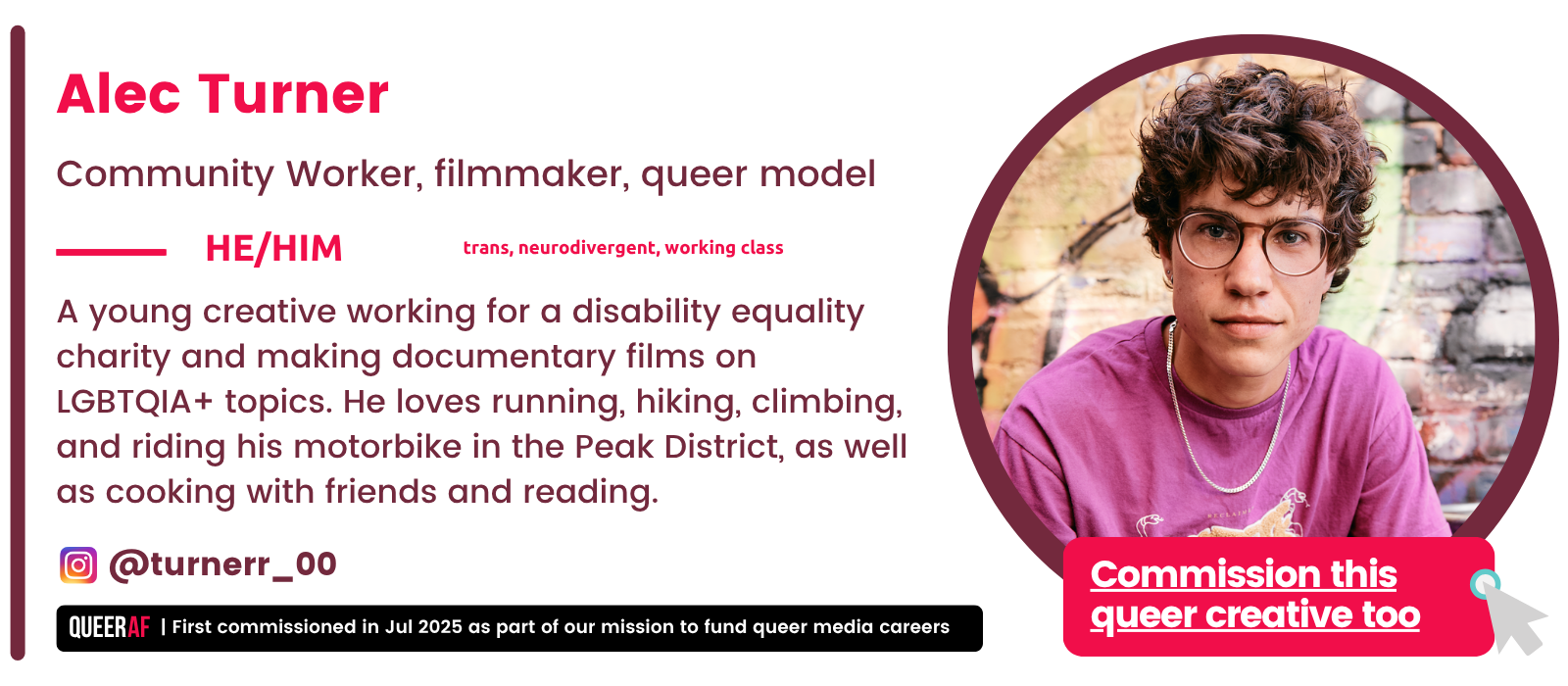
We deserve good news too.
When there is so much hate out there, it's easy to get swept up in the doom.
QueerAF doesn't do that. We sprinkle in the joy that is the lifeblood of why being LGBTQIA+ is so simply wonderful.
And in the newsletter where this was first published, there was actually a bunch of positive news to celebrate. It shows me that despite the headlines knocking us down, we're getting right back up again and using our anger to fuel our fight.
While the rest of the media cashes in on hate about us, we can focus on queer joy - because you drive us. The community. QueerAF readers - not advertisers.
Our members directly fund our content. When you sign up, you get to have your say on how your funds are used. On what content we should commission.
But we turn down advertising and sponsorships in this newsletter so we can focus on delivering on content for you, not just clicks. That's why we need you to sign up to become a QueerAF member.
You'll join hundreds of awesome queer as f**k members who ensure we can keep our unique approach to queer content happen. If you want to see the media cover more stories about the joy in our lives - please, consider a membership. We can't run our outlet without you.

